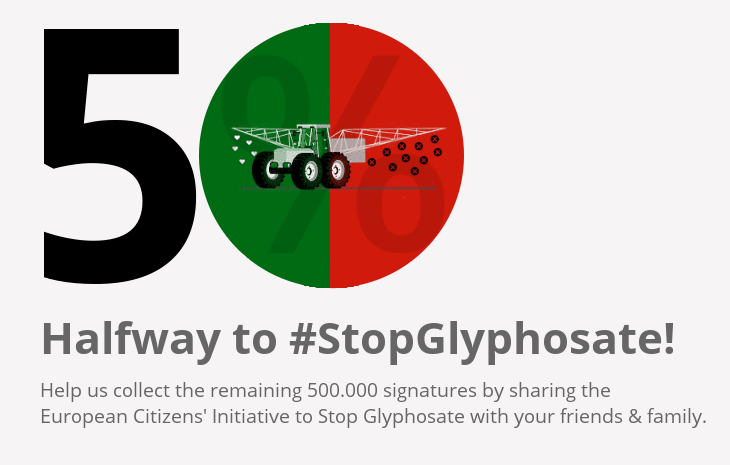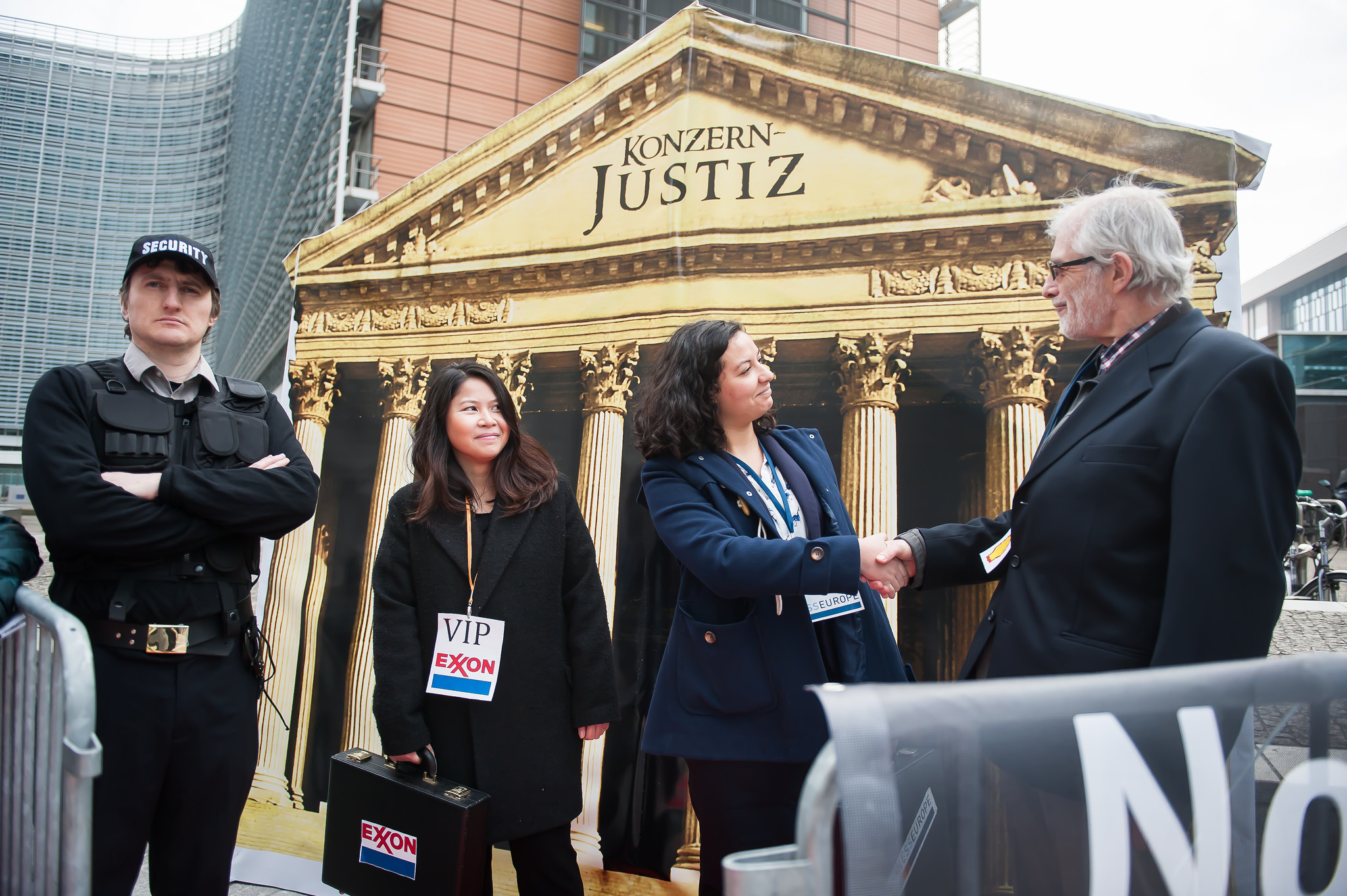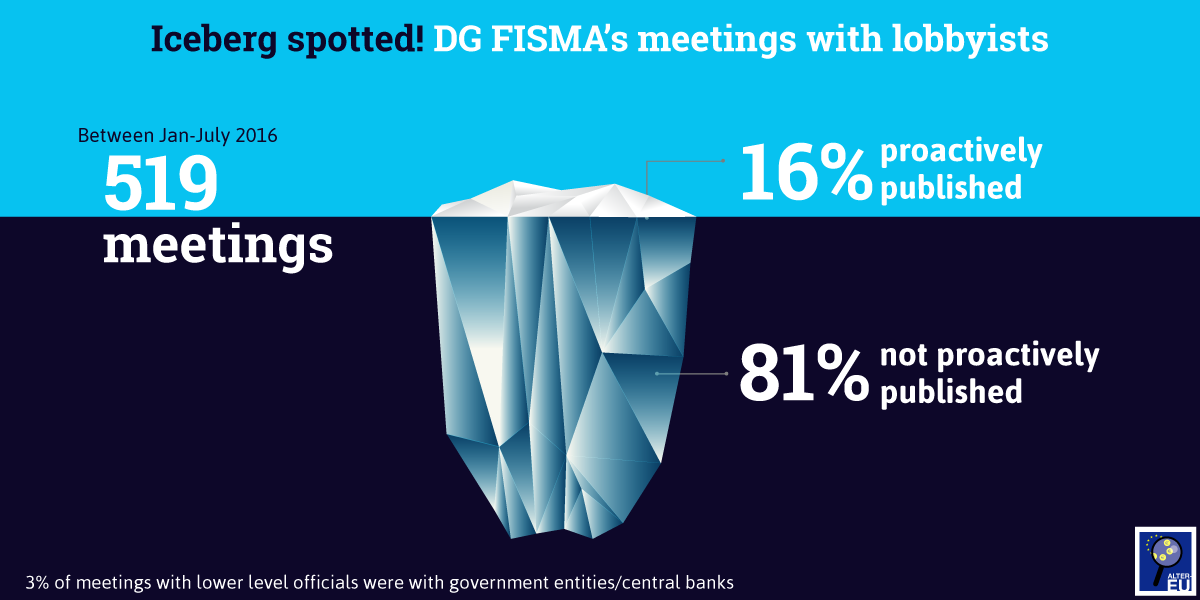27 March 2017
+++ Over half a million people have already signed the #StopGlyphosate European Citizens Initiative, so we’re halfway there! If you haven't already, add your name and get your friends to sign to help us collect the remaining signatures needed.+++

The #StopGlyphosate European Citizens Initiative is calling on the European Commission to propose a ban on glyphosate, to reform the pesticide approval procedure, and to set EU-wide mandatory reduction targets for pesticide use.

The European Commission’s new rules on its problematic advisory groups came into full force on 1 January 2017. Formerly known as ‘expert groups’, they shape the early stages of legislation, but have traditionally been dominated by industry representatives. Our preliminary research into these highly influential groups confirms a continuing corporate dominance across their membership. Last month, the European Parliament voted in favour of tightening the new rules further – but will the Commission listen?

A new European Commission proposal is set to entrench the dangerous investor-state dispute settlement (ISDS) system, which foreign investors can use to subvert democratic decision-making. Together with other civil society groups in the Seattle to Brussels Network (S2B), we developed a position paper on the proposal, which outlines some of the serious risks with it.
Take action: Sign the petition calling on the European Commission to withdraw plans to establish this ‘multilateral investment court’ and to commit to abolish them in existing agreements.

Canadian mining company Gabriel Resources is using an investor-state lawsuit to push through its illegal toxic gold and silver mine in the historical Romanian village of Roşia Montană. The project was put on hold after facing strong community resistance and necessary permits were revoked after Romanian courts found that the company had previously obtained several permits illegally. Our joint report shows how Gabriel Resources is now using a legal backdoor to sue Romania in an international investment tribunal, potentially demanding billions in taxpayer money as compensation because of the country’s alleged ‘failure’ to issue the permits. The lawsuit foreshadows the massive claims which could hit the EU and its member states if trade deals like the EU-Canada CETA agreement are concluded.

One of our new pieces of research has shown how members of the copyright industry and their political allies are waging an EU lobby battle over proposed copyright exceptions aimed at giving blind and visually-impaired people greater access to accessible-format reading materials. Read how the German government directly lobbied MEPs on behalf of industry, and how the Parliament is now facing a negotiating battle with the Council, to defend the rights of print-disabled people.

In June 2016, the EU’s Trade Secrets Protection Directive was enacted to repress espionage, theft and unauthorised publication of companies' confidential business information, their “trade secrets”. But the way it defines these is so broad that it will most likely also make public scrutiny of corporate activities more difficult. But national parliaments do have margins of manoeuvre to limit the damage and should use them! Our guide to the Directive aims at providing background information and analysis to this legislation in order to help national legislators and civil society when it reaches national parliaments for discussion and adoption.

The ‘Dieselgate’ scandal has lifted the lid on a culture of industry self-regulation and light-touch rule-making that is facilitated by European decision makers. Our study highlights how both the European Commission and Member States turned a blind eye to industry-wide abuse of the system for emissions regulation, and as part of the ‘Better Regulation’ agenda even invited the car industry to shape regulation as well as its enforcement.
The European Central Bank (ECB) has injected around 67 billion Euros into the Eurozone economy since June 2016 to fund corporate bond purchases. This is part of a money creation programme known as ‘quantitative easing’, a scheme aimed at stimulating the Eurozone economy through the purchase of corporate bonds. However, in the name of growth, this programme supports companies at the heart of the climate crisis. Among the list of corporations favoured by the ECB are some from the dirtiest industries on the planet.
Over 70 international organisations and civil society groups published an open letter demanding transparency; an end to funding for fossil fuels and for the EU to develop an alternative.

The EU Emissions Trading System has been flirting with big polluters since the start, awarding billions in subsidies to some of the EU’s dirtiest industries. Proposals to extend the scheme from 2021 to 2030 could mean a decade more of cheating on our climate obligations. Read our reaction to the vote.
Work by allies: Lobby transparency loopholes and corporate bias

ALTER-EU published new figures on how President Juncker’s policy of proactive transparency transparency rules still fail to address loopholes in lobbying transparency rules and do not ensure a balanced consultation of stakeholders. Up to 83 per cent of lobby meetings of the Commission department responsible for the EU policy on banking and finance, DG Fisma, were not covered by the Commission’s transparency rules. 92 per cent of meetings with lower level officials in DG Fisma are held with corporate interests, and up to 13 per cent of meetings with EU officials are with unregistered lobbyists.
|









